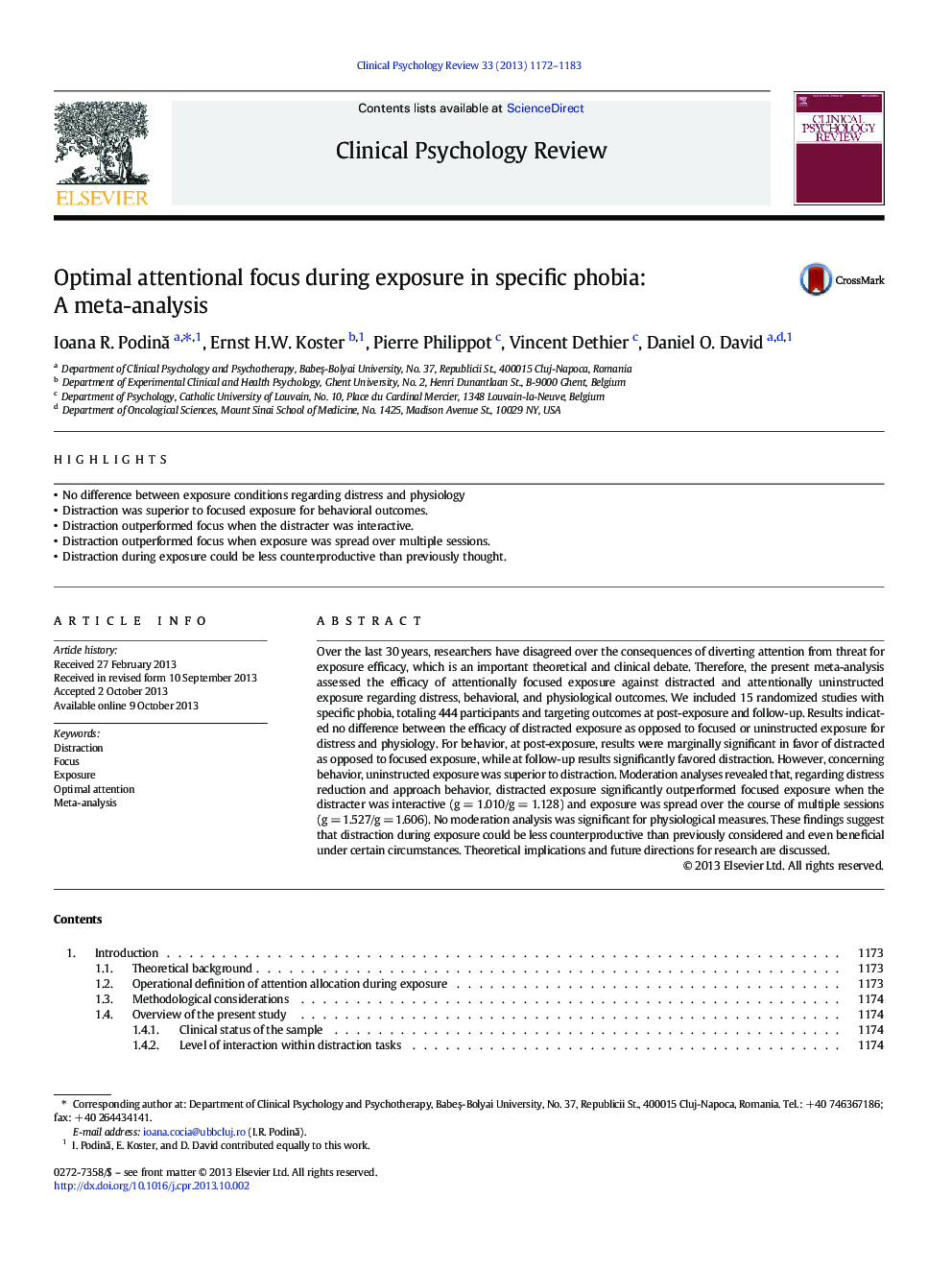| Article ID | Journal | Published Year | Pages | File Type |
|---|---|---|---|---|
| 10445757 | Clinical Psychology Review | 2013 | 12 Pages |
Abstract
Over the last 30 years, researchers have disagreed over the consequences of diverting attention from threat for exposure efficacy, which is an important theoretical and clinical debate. Therefore, the present meta-analysis assessed the efficacy of attentionally focused exposure against distracted and attentionally uninstructed exposure regarding distress, behavioral, and physiological outcomes. We included 15 randomized studies with specific phobia, totaling 444 participants and targeting outcomes at post-exposure and follow-up. Results indicated no difference between the efficacy of distracted exposure as opposed to focused or uninstructed exposure for distress and physiology. For behavior, at post-exposure, results were marginally significant in favor of distracted as opposed to focused exposure, while at follow-up results significantly favored distraction. However, concerning behavior, uninstructed exposure was superior to distraction. Moderation analyses revealed that, regarding distress reduction and approach behavior, distracted exposure significantly outperformed focused exposure when the distracter was interactive (g = 1.010/g = 1.128) and exposure was spread over the course of multiple sessions (g = 1.527/g = 1.606). No moderation analysis was significant for physiological measures. These findings suggest that distraction during exposure could be less counterproductive than previously considered and even beneficial under certain circumstances. Theoretical implications and future directions for research are discussed.
Related Topics
Health Sciences
Medicine and Dentistry
Psychiatry and Mental Health
Authors
Ioana R. PodinÄ, Ernst H.W. Koster, Pierre Philippot, Vincent Dethier, Daniel O. David,
